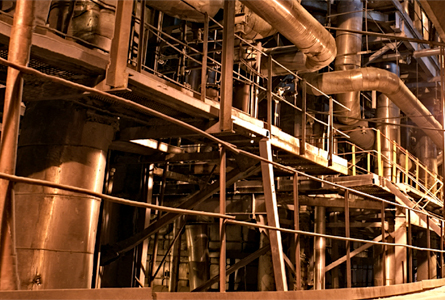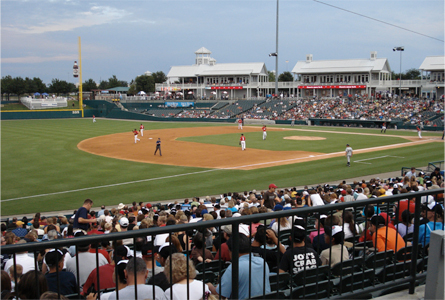Type A and Type B

Type A Projects
The Type A sales tax is used for manufacturing and industrial development. EDCs may use Type A revenue to fund land, buildings, equipment, facilities expenditures, targeted infrastructure and improvements for projects including:
- manufacturing and industrial facilities, recycling facilities, distribution centers, and small warehouse facilities;
- research and development facilities, regional or national corporate headquarters, job training facilities operated by higher education institutions, job training classes, telephone call centers and career centers;
- infrastructure improvements that promote or develop new or expanded business enterprises;
- aviation facilities;
- commuter or light rail or commuter bus operations;
- port-related facilities, railports, rail switching facilities, marine ports, inland ports;
- maintenance and operating costs associated with projects; and
- contaminated property clean-up.
With voter approval, Type A EDCs may fund projects eligible under Type B without voting to abolish the Type A tax and impose the Type B tax. In this situation, a Type A EDC must publish notice of its intent to fund a Type B project, hold at least one public hearing and conduct a special election.
A Type A corporation cannot assume, or pay principal or interest on, debts that existed before voters agreed to establish the EDC.
Who can create a Type A EDC?
Any city located in a county with a population of less than 500,000 may impose a Type A tax if the new combined local sales tax rate would not exceed 2 percent.
Some cities located in counties with a population of 500,000 or more (Bexar, Dallas, El Paso, Harris, Hidalgo, Tarrant and Travis) may also use Type A for economic development efforts but a city's eligibility varies from county to county. For information on which cities are eligible in these counties, call the Comptroller's Local Government Assistance section at (800) 531-5441, ext. 3-4679.

Type B Projects
The Type B sales tax may be used for projects eligible under Type A, plus quality of life improvement projects. Type B corporations may pay for land, buildings, equipment, facilities, targeted infrastructure and improvements for:
- sports and athletic facilities, tourism and entertainment facilities, convention facilities and public parks;
- related store, restaurant, concession, parking and transportation facilities;
- related street, water and sewer facilities; and
- affordable housing.
A Type B EDC may also fund:
- public safety facilities;
- recycling facilities;
- streets, roads, drainage and related improvements;
- demolition of existing structures;
- general municipally owned improvements; and
- maintenance and operating costs associated with projects.
Type B EDCs also may seek voter approval for a water supply or water conservation programs or cleanup of contaminated property.
Who can create a Type B EDC?
All cities are eligible to adopt the Type B sales tax if the combined local sales tax rate would not exceed 2 percent.
Exceptions for Small Cities and Landlocked Communities
Type B EDCs created by cities with a population of 20,000 or less and those classified as landlocked communities may use sales tax proceeds to fund projects that promote new or expanded business development that do not create or retain primary jobs. A landlocked community must be located in either Harris or Dallas counties and have less than 100 acres within its city limits and extraterritorial jurisdiction zoned for manufacturing or industrial facilities.
Special Provisions for Border Communities
Development corporations created by cities located within 25 miles of the Texas-Mexico border may fund airport facilities if the city has a population of less than 50,000 or an average unemployment rate that is greater than the state average rate during the 12 months prior to the project's approval. In addition to airports, Type A and Type B corporations located in Hidalgo County may fund ports and sewer or solid waste disposal facilities required or suitable for infrastructure necessary to promote or develop new or expanded business enterprises.
Need Help?
For additional information, contact the Data Analysis and Transparency Division via email or at 844-519-5672.

